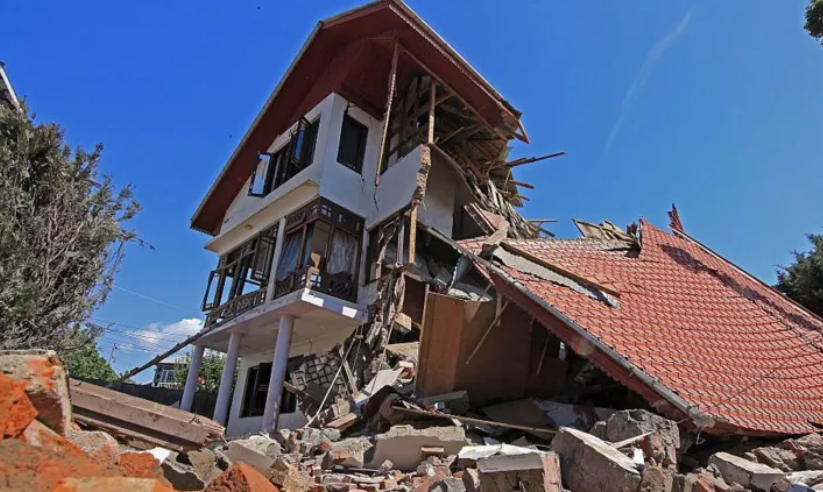Indian security forces have demolished the houses of at least 10 alleged militants and detained more individuals as investigations continue into the deadly attack on tourists in Indian-administered Kashmir last week. The attack, which killed 26 people, is being investigated as the most deadly assault on civilians in the region in two decades.
Since the attack near the tourist town of Pahalgam last Tuesday, Indian security forces have been using explosives to destroy properties linked to the suspects, with some houses reportedly belonging to militants or their families. The demolitions began last Thursday and continued into the weekend, drawing criticism from local leaders who question whether the action unfairly punishes families of suspected militants.
While authorities have not officially commented on the demolitions, sources say that the targeted homes belong to individuals involved in militant activities or those who have crossed over into Pakistan. Jammu and Kashmir’s Chief Minister Omar Abdullah voiced concern, stating that while militants should be punished, innocent civilians should not suffer as collateral damage. Former chief minister Mehbooba Mufti echoed these concerns, emphasizing the need to distinguish between militants and civilians.
The ongoing investigation has led to the detention of over 1,500 people since the attack, though the exact number of those held remains unclear. Authorities have named three of the four attackers, two of whom were Pakistani nationals and one from Indian-administered Kashmir. The fourth suspect’s identity has not been disclosed.
Indian officials have accused Pakistan of supporting militants responsible for the attack, though no specific group has been named. A little-known group, the Resistance Front, was initially believed to have claimed responsibility but later denied involvement. The group is reportedly linked to Lashkar-e-Taiba, a militant group based in Pakistan.
The attack, which has sparked widespread outrage in India, particularly targeted Hindu men, according to survivors. Prime Minister Narendra Modi vowed to hunt down the perpetrators and punish those responsible “beyond their imagination.” The attack has intensified tensions between India and Pakistan, with both countries taking retaliatory measures.
India has suspended the 1960 Indus Waters Treaty, a water-sharing agreement between the two nations, which Pakistan has condemned as an “act of war.” In response, Pakistan suspended the 1972 Simla Agreement, which called for resolving disputes peacefully through bilateral negotiations. Both countries have also expelled diplomats, and hundreds of Pakistanis, including diplomats, have left India.
Meanwhile, violence has escalated along the Line of Control (LoC), the de facto border between the two countries, with reports of firing for several consecutive nights. India has also accused Pakistan of initiating the cross-border fire, though Pakistan has yet to confirm the claims.
In the U.S., a state department spokesperson urged both India and Pakistan to seek a responsible resolution, while the British government has also engaged with officials from both sides to defuse tensions. As the situation unfolds, the international community continues to monitor the fragile peace between the nuclear-armed neighbors.


